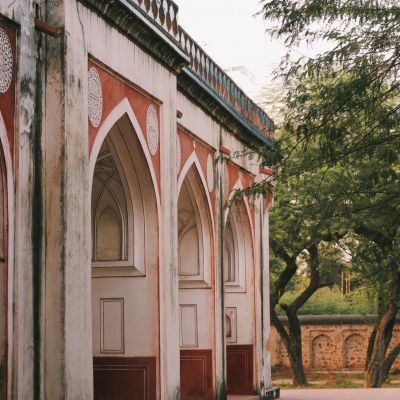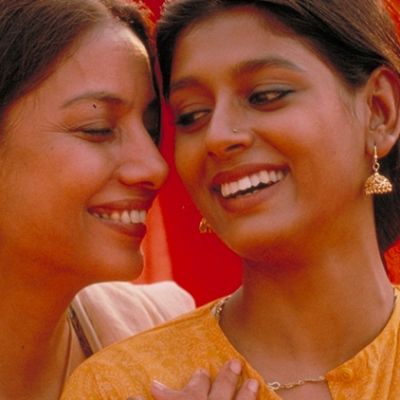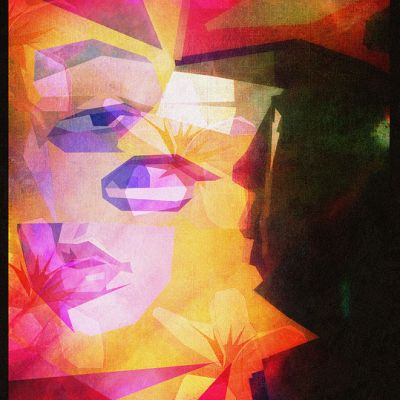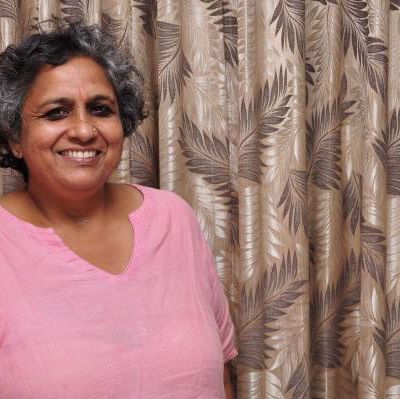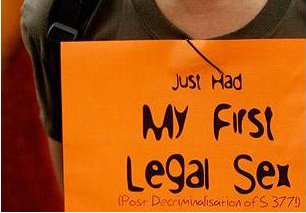Section 377
We are two boys in our early twenties
who can read touch like that, who have broken into
a 200-year-old mansion, without permission,
to see from above where people like them go
after 377 has been read down only for those
who can stay behind closed doors — in the custody
of cheap hotels, or houses that welcome nights
with the sound of latches closing.
In our mid-month issue, Stuti Tripathi considers whether raising the minimum age of marriage for women from 18 to 21years is indeed a one-stop solution to check early marriages. She brings to our attention the many factors, such as family pressure, inaccessible educational and financial resources, traditionally defined roles of women, and gender-based marginalisation that together lead to early marriages and argues that young people need rights not protection.
The social value of the platonic relationship needs to be restated: Too many boys today grow up with the idea that their relations with women (who are not their mothers and/or sisters) are confined to an oversexualised romantic bubble.
Law is often violent – it incarcerates, shames our so-called deviance, and classifies who is worthy and not worthy of gaining access to rights and what kind of rights can be ceded at a particular moment. Yet, we believe we can change the law, make it sensitive to our existence
Allred’s story is important because it shows us how an individual used her knowledge, power, and position to challenge the legal system in demanding rights and equality, especially for women and LGBTQ+ people.
वापस फिर एक बार, पोस्टर पर लिखी गयी घोषणा पर लौटते हुए – पहली बार ‘कानूनन’ सेक्स कर पाने के अपने अनुभव को ज़ाहिर करने की इस घोषणा में एक बहुत ही शक्तिशाली सांकेतिक संदेश निहित है जो हमें सेक्स में ज़्यादा चरम आनंद लेने में भले ही मदद न करे लेकिन मुक्ति के चिन्ह हमेशा धनी लोगों द्वारा किए जा रहे दिखावे की तरह नहीं होते, उनमें एक प्रभावी संदेश निहित होता है।
The war continues as queer collectives, LGBTQ support groups, and college students across the country rally for safer, more inclusive educational institutions.
Whether it is family, society, gangs of thugs, or political parties, the threats to women’s freedom to choose in India are many and varied. To the above list, one may add the police and the judiciary as well.
When Deepa Mehta’s Fire came out in 1996, violent protests roiled India over the depiction of romance between two female leads. There is no homosexuality in India, demonstrators declared while burning effigies in the Capital. In contrast, when Margarita With A Straw came out in 2014, it received accolades for its sensitive portrayal of queer desire in a woman with disability.
In an e-mail conversation with TARSHI, Alok Vaid-Menon talks about both performativity and poetic performance.
Any desire, not necessarily or narrowly sexual, but perhaps related to sexuality, such as independence, equality, gender role-bending, controlling your own finances, eating the food you’d like to eat as opposed to the food your spouse desires, wearing the clothes you’d like to wear, birth control, choosing to have or not to have children … any of these desires would have only that importance that the individual concerned is able to apportion to it.
It is the winter of 2013, and my father and I are sitting at an awkward distance from each other on the living room couch, our eyes trained on the television set as a popular prime time news debate discusses a subject we have never before talked to each other about – homosexuality. It is only a few days since Section 377 has been reinstated by the Supreme Court, and the television and print media bombards us with discussion after discussion on ‘alternate’ sexualities and LGBTQ rights.
Post the historic Naz Foundation judgment of the Delhi High Court in July 2009, a prominent English news magazine carried…

